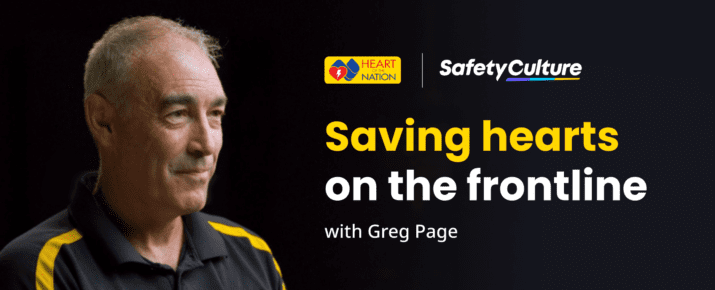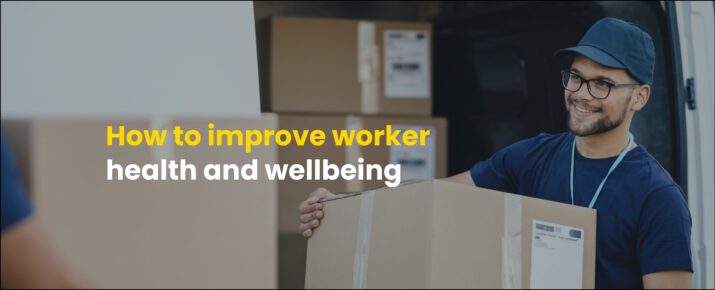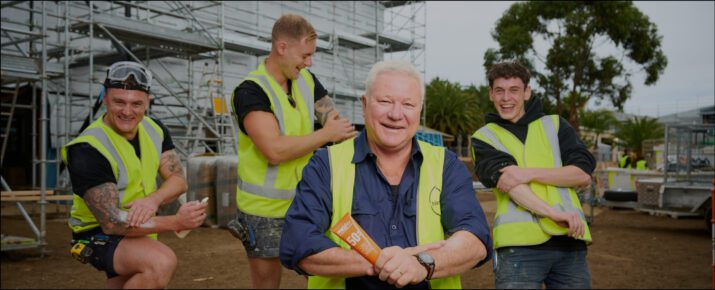Taking Stock: 5 industry experts on how to rebuild better after the pandemic
Ask The Experts | Industry Trends | By | 9 Apr 2022 | 7 minute read
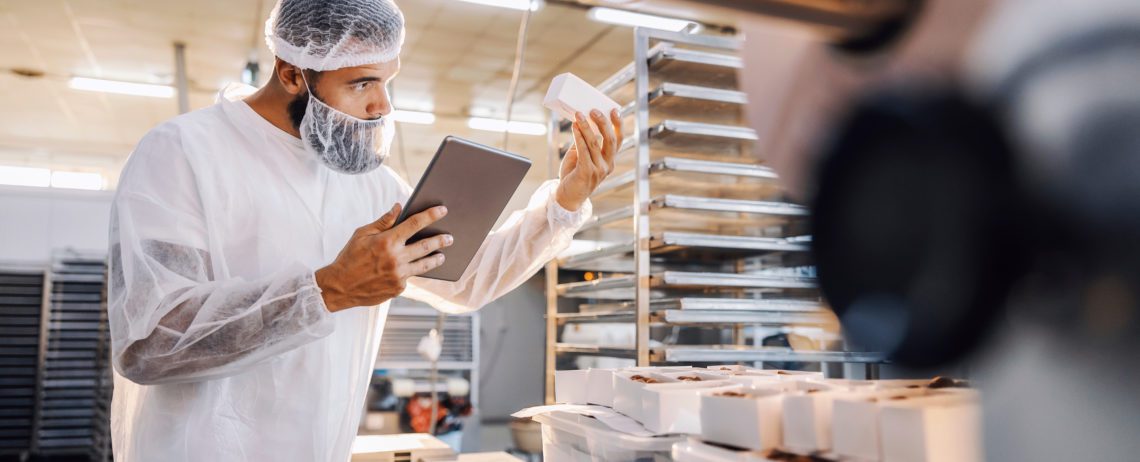
If another pandemic prediction piece is the last thing you need, you’re in the right place.
We get it.
The world is awash with predictions owing to the pace and breadth of change in recent years. So we decided to go straight to the source — industry leaders in the thick of it, handling every hurdle and putting in the hard yards. We asked them….
What new processes did you create in Covid that will continue long after the pandemic? And what is the biggest opportunity you see for positive change?
What we learned was a little different to what you might think.
A common theme emerged. It wasn’t so much about hypothesizing about what the future holds but instead appreciating how organizations had changed for the better. The pandemic stripped back bureaucracy and forced businesses to innovate at a speed that was previously unthinkable — simply because there was no other choice.
As we move towards endemicity, there’s no time like the present to pause and take stock. Here’s a look back—and a lens on what’s next.
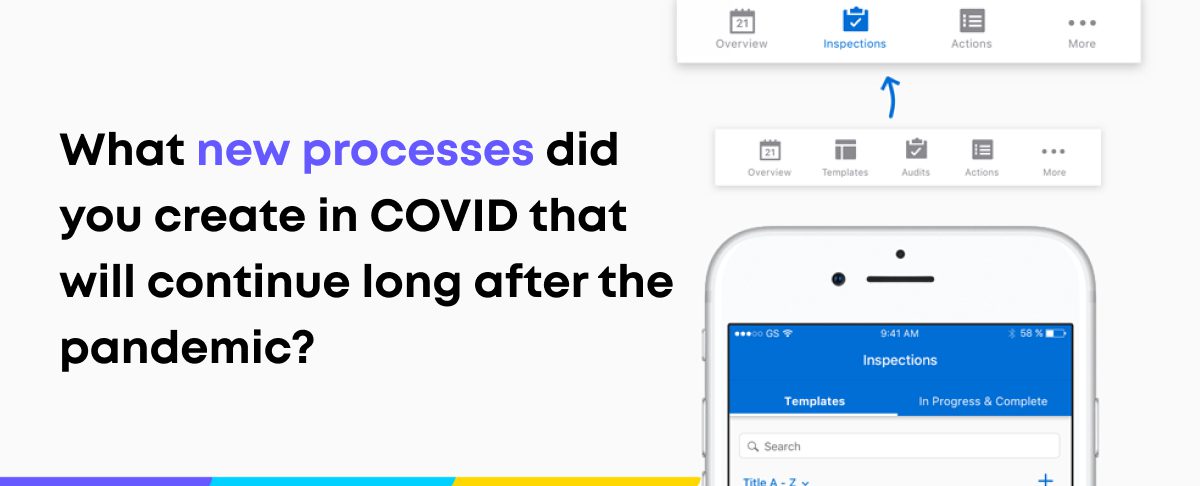
Technology is no longer a competitive advantage — it’s the cost of entry
Early in the pandemic, one thing became clear — the acceptance of technology and innovation across industries and geographies was mission critical. Those companies that had invested in digital transformation found themselves in a much better position. The mechanisms of the Fourth Industrial Revolution were accelerated and post-pandemic we are in a unique position to drive digitization even further.

“Restaurants have been notoriously behind within the technology use realm. When Covid hit, the majority of restaurants had to shift overnight to the use of technology as a way to communicate and connect with our guests. Although that shift happened fast and caused many disruptions, it moved us forward by about 10 years as an industry. Tools that allow us to create efficiency and accuracy in our business are now a part of our everyday. It is no longer a competitive advantage, it is a cost of entry into the industry. The use of technology will also allow us to attract the next generation of employees which is a solution to the talent demand. Tools provided by SafetyCulture are amongst some of the greatest tools out there that aid restaurants in creating a strong technology platform.”
— Brianna Borin, Snooze A.M. Eatery, Senior Vice President of People
Measured urgency meets shorter innovation cycles
In dynamic work environments, where circumstances change in the blink of an eye, speed is a competitive edge. Businesses big and small were forced to think on their feet. Differentiating between fast and rash became a key skill in the pandemic when revamping business strategies.

“COVID has sparked a renaissance in the local food manufacturing sector, and Roma Foods is fortunate to be riding this wave. With ever-changing government regulations and market dynamics, COVID led to us adopting a new mindset of ‘measured urgency’, proving that we can do better, quicker, and more effectively. To achieve this, Roma defined a new business strategy to meet the needs of the ever-growing health shopper, launching over 25 new products into the health and mainstream aisles and adopting new technology improvements such as digitizing workflows to empower our journey of growth and innovation whilst ensuring our priority remains on safe people, safe product and safe data.”
— Sam Schachna, CEO, Roma Foods
Workplace collaboration reimagined
The world of work is constantly changing – and for many, the pandemic-induced acceleration has caused major shifts in how their organization, or their industry as a whole, conducts itself. Organizations need systems for learning and communication that could easily adapt to in-person, hybrid, and remote working environments. Finding innovative ways to plan and collaborate while social distancing is probably one of the biggest opportunities that have come out of the pandemic. Businesses were forced to reevaluate how they worked — and worked together.
“Sydney Metro has done a great job adapting to the impacts of the pandemic. The health and safety of our people was at the forefront of our minds, this resulted in new initiatives and processes. Monday afternoons (3-5pm) became meeting free to give people time and space to think and do rather than continually be in online meetings. Collaboration spaces were created on Microsoft Teams to minimise email traffic, encourage discussion and sharing.”
— Louise Howard, Deputy Executive Director Health & Safety, Sydney Metro
“It’s typical for large groups of people to meet in small spaces, such as a job trailer or conference room, on a daily basis in order to plan work and coordinate efforts. Virtual meeting spaces, collaborative planning tools and automated documents and workflows have become more common and people are finding new opportunities on a regular basis to streamline previous manual processes. These innovations have reduced downtime and travel costs and improved quality and efficiency.”
– Kevin Gausch, CEE, SafetyCulture
Effective checks that build resilience to health and safety shocks
There’s been a worldwide trend in the appreciation of a certain leadership style —the conscientious kind. Ones that prioritize public health and safety procedures and embed them in day to day processes have reaped the rewards throughout the pandemic.
“We have created so many new practices during Covid that have been welcome changes within the hospitality industry. An awareness around safety and health is a big one for an industry that had the mentality of “the tougher the better”. We rolled out a significant digital daily wellness check processes that continue to serve us well in regard to keeping our guests and Snoozers safe.”
— Brianna Borin, Snooze A.M. Eatery, Senior Vice President of People
“The top focus in the aviation industry is trying to restore customer interest in a safer product that has a lower risk of infectious disease transmission. Adding HEPA filters to the aircraft, requiring mask-wearing in the aircraft cabin, providing hand sanitizer and wipes onboard, and enhancing all of the cabin cleaning services through the use of more effective chemicals and robust cleaning checklists and covid prevention strategies.”
— Kevin Crowley Howard, Sr. Analyst; Ground Safety Programs – CQA/ASQ, JetBlue
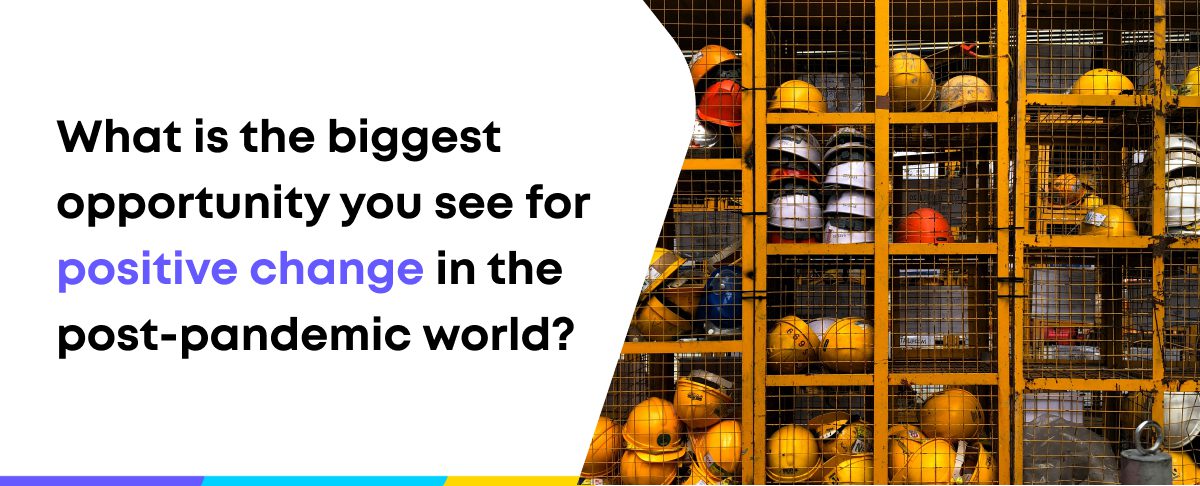
Tapping into new talent pools
More opportunities for positive change lie ahead, but only if we pay attention to the problems laid bare by the pandemic. One issue we see rapidly gaining ground is The Great Resignation. Some may think that The Great Resignation is a byproduct of the pandemic. Yet research shows that employee turnover has been on the up for the past decade. New or not, it’s a timely reminder that the market moves quickly and organizations need to pay attention — and look for ways to tap into new talent pools.

“Staff shortage is the biggest issue facing the public infrastructure sector. This was a problem for us pre-pandemic and has only been intensified by the impacts of Covid. But the use of a hybrid work environment is creating accessibility to the sector by groups who may not have previously seen a career in our industry. Flexibility in roles becoming the norm will encourage different forms of employment such as job share and part-time arrangements and hopefully attract a more diverse group of individuals to work on these incredible projects.”
— Louise Howard, Deputy Executive Director Health & Safety, Sydney Metro
“Hospitality’s top priority is to attract talent back into our industry. Millions of people left the industry during Covid for various and accurate reasons, but the industry has become so competitive that it isn’t serving anyone. There are industry-wide changes like predictive scheduling, flexible scheduling, minimum level safety expectations, reduction in “restaurant culture/harassment” and enhanced benefits and wages that our industry desperately needs in order to attract people back to our industry.”
— Brianna Borin, Snooze A.M. Eatery, Senior Vice President of People
Rethink how we work and what we value
Post-pandemic, we need to be thoughtful and intentional about how human needs and systems interact and co-exist with the processes and technologies we increasingly integrate into our lives.

“As you would expect, focus on our people’s health was front and center during a global health pandemic — the continuation of this needs to happen. Employers need to consider a whole person view in regards to health, the physical, mental and social aspects of our people and the impacts (positive or negative) they can have. Allowing people to be supported by bringing their whole selves to work is a win win for everyone.”
– Louise Howard, Deputy Executive Director Health & Safety, Sydney Metro
Invest in local supply chains
Whilst COVID has been an extreme global disruptor, it has exposed the vulnerability of imported food systems. This has reinforced the need to build local preparedness and continuity strategies as we continue to face supply chain instability due to events spanning from natural disasters to global political instability. As challenging as it is, dealing with the coronavirus has given us the unexpected opportunity to rethink and redevelop local supply networks. To make change happen, we need to think differently and build regionally.

“Something that insulated Roma Foods against major COVID disruption was our existing focus on local, robust supply chains. The industry will face continued supply chain disruption from both COVID and global influences. It is therefore critical to purchase locally wherever possible and build strong relationships to enhance the overall resilience of the sector. Roma Foods is proud of its strong relationships with local suppliers based on years of collaboration. As an industry, we need to invest in the depth and capability of local supply chains – from farm to plate – to ensure that we are always in a position to provide food security to all in our community.”
— Sam Schachna, CEO, Roma Foods
Get serious about tech
As we adopt new tools and tech, we also need to take the time to think about its purposes — how to wield them to better serve us and connect us. New technologies can bring flexibility, equity and efficiency that we need; closing the loop for better ways of working for everyone involved.

“The biggest opportunity for the construction industry as a result of Covid is the adoption of technology. Construction has historically lagged behind other sectors when it comes to the use of smart devices, software solutions and automation. Workers who have to date been slow to adopt and, at times outright resistant to technology, are finding out that after a short period of time that it’s “not so bad” and even makes their lives easier. Reducing the ever-growing administrative burden being placed on foreman and general foreman is an opportunity for everyone to benefit from. We’ve also learned effective and efficient communication is critical. Having the ability to get the most up-to-date information in the hands of the frontline workers is our best chance to keep them safe — and technology is the best route to do that.”
– Kevin Gausch, CEE, SafetyCulture
Celebrate work that breaks boundaries
Being alive to opportunity means having the courage to challenge the status quo and offer perspectives that are lacking in the industry: be it diversity of technology or diversity of thought.

“Always challenge the status quo. Covid created the platform that demonstrated how we could adapt and implement a different work environment very rapidly. We threw out the rule book of pondering, planning, workshopping, testing and piloting and replaced it with action, experimentation and iteration. This covered everything from leadership, ways of working, organisational culture and business priorities. My call to action is examine everything you were doing and are now doing and question its value, alignment with your priorities and establish if any improvements can be made. If the last two years has taught us anything, for me it is to continue to listen to your people. There has not been a rule book for Covid, we have had to rely on each other so don’t let go of the positives from this unifying experience.”
— Louise Howard, Deputy Executive Director Health & Safety, Sydney Metro
“Remain flexible and think outside the box. The “we’ve always done it this way” mentality is obsolete. It’s a different world than the one we lived in 3 years ago and the ability to innovate, embrace change and continually improve will determine who will be around for the long term and who will be left behind.”
— Kevin Gausch, CEE, SafetyCulture
Important Notice
The information contained in this article is general in nature and you should consider whether the information is appropriate to your specific needs. Legal and other matters referred to in this article are based on our interpretation of laws existing at the time and should not be relied on in place of professional advice. We are not responsible for the content of any site owned by a third party that may be linked to this article. SafetyCulture disclaims all liability (except for any liability which by law cannot be excluded) for any error, inaccuracy, or omission from the information contained in this article, any site linked to this article, and any loss or damage suffered by any person directly or indirectly through relying on this information.
